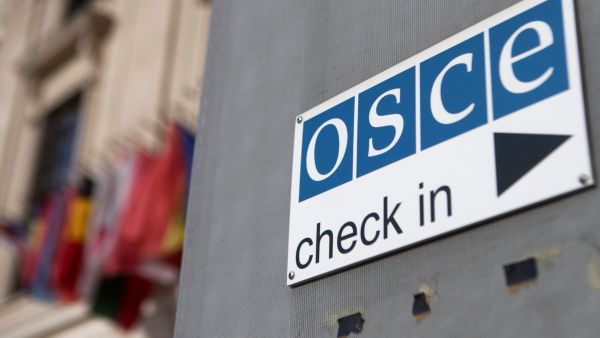The Organization for Security and Cooperation in Europe said one of its members was killed in Russia's shelling of the Ukrainian city of Kharkiv.
The intergovernmental organization, which has observer status at the United Nations, said Wednesday that Maryna Fenina, a member of its Special Monitoring Mission to Ukraine, was killed a day prior while getting supplies for her family as Russian forces attack the country's second most populated city.
Zbigniew Rau, OSCE chairman-in-office and Poland's foreign minister, with Helga Maria Schmid, OSCE secretary general, said in a joint statement that they remain in close contact with Fenina's loved ones to offer support.
JUST IN - OSCE mission member to Ukraine died in the shelling in Kharkiv yesterday, 1 March. https://t.co/3o2qazNOid
— Disclose.tv (@disclosetv) March 2, 2022
"Our deepest condolences and sympathies go to Maryna's family," the said.
Since invading Ukraine last week, Russian forces have bombed Kharkiv in northeastern Ukraine, hitting its regional State Administration building, the regional police department and Kharkiv National University, as well as residential buildings.
Rau and Schmid said the city "has become a war zone."
"In Kharkiv and other cities and towns in Ukraine, missiles, shells and rockets are hitting residential buildings and town centers, killing and injuring innocent civilians -- women, men and children alike," they said. "Despite repeated calls from across the international community, and from across the OSCE, the unprovoked military operation against Ukraine continues."
On Tuesday as Kharkiv was being shelled, Rau accused Russia of committing war crimes, citing Hague Regulations and the Geneva Conventions that prohibit attacking or bombing undefended residential buildings.
"Shelling of [Ukraine's] cities and targeting civilians must be condemned by all members of the international community," he tweeted. "It's a war crime under international law!"
On Wednesday, the International Criminal Court said it would begin investigating Russia for possible war crimes.
This article has been adapted from its original source.









